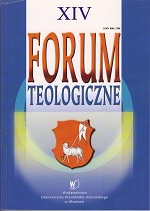Dni świąteczne diecezji warmińskiej w XIX wieku
Festive days of the Diocese of Warmia in the 19th century
Author(s): Marek JodkowskiSubject(s): History
Published by: Wydawnictwo Uniwersytetu Warmińsko-Mazurskiego w Olsztynie
Keywords: „vowed day”; celebration; Warmian pilgrimages; East Prussia; Germany in the 19th century; The Diocese of Warmia.
Summary/Abstract: After the announcement of the papal bull De salute animarum in 1821, apart from the issue of reorganization of the diocese, the state authorities were concerned with the introduction of a general Prussian order of festive days that would be valid in every parish. The task of developing a project of such a list of holidays was assigned to the future Bishop of Trier – Josef von Hommer. He prepared a proposal of ten holidays only. This number was regarded as unsatisfactory by the Catholic bishops of the so-called Old Prussian dioceses. Giving an opinion on the above-mentioned project, the Bishop of Warmia, Joseph Hohenzollern, presented a list of thirteen religious festivals which were to become official state holidays. Regardless of the negotiations in progress, the inhabitants of the Diocese of Warmia in the mid-1930s celebrated Christmas, Easter, two days of Pentecost, New Year, the Ascension Day, the Epiphany, the Purification of the Blessed Virgin Mary, the Annunciation, Saint Adalbert’s Day (Day of Penance), Corpus Christi, Saint Peter and Paul Day, All Saints’ Day, the Immaculate Conception and Saint Andrew the Apostle Day. The order of these festivals, announced as a papal brief in 1788, was approved by King Frederick William II. Other holidays celebrated in the Diocese of Warmia were the so-called “vowed days” (gelobte Tage). They were introduced before the incorporation of Warmia to the Kingdom of Prussia. They usually occurred on weekdays, when no work regarded as menial was done. In some places, the church celebrations were accompanied by a pilgrimage. In 1838, the celebration of the “vowed days” was moved to the Sundays immediately following them.
Journal: Forum Teologiczne
- Issue Year: 2013
- Issue No: 14
- Page Range: 91-102
- Page Count: 12
- Language: Polish

